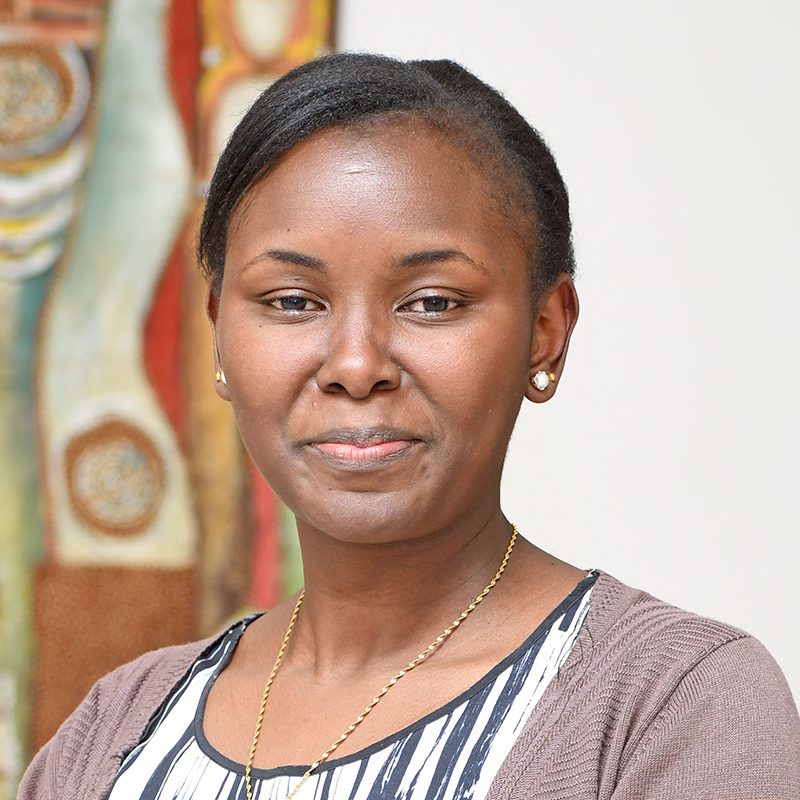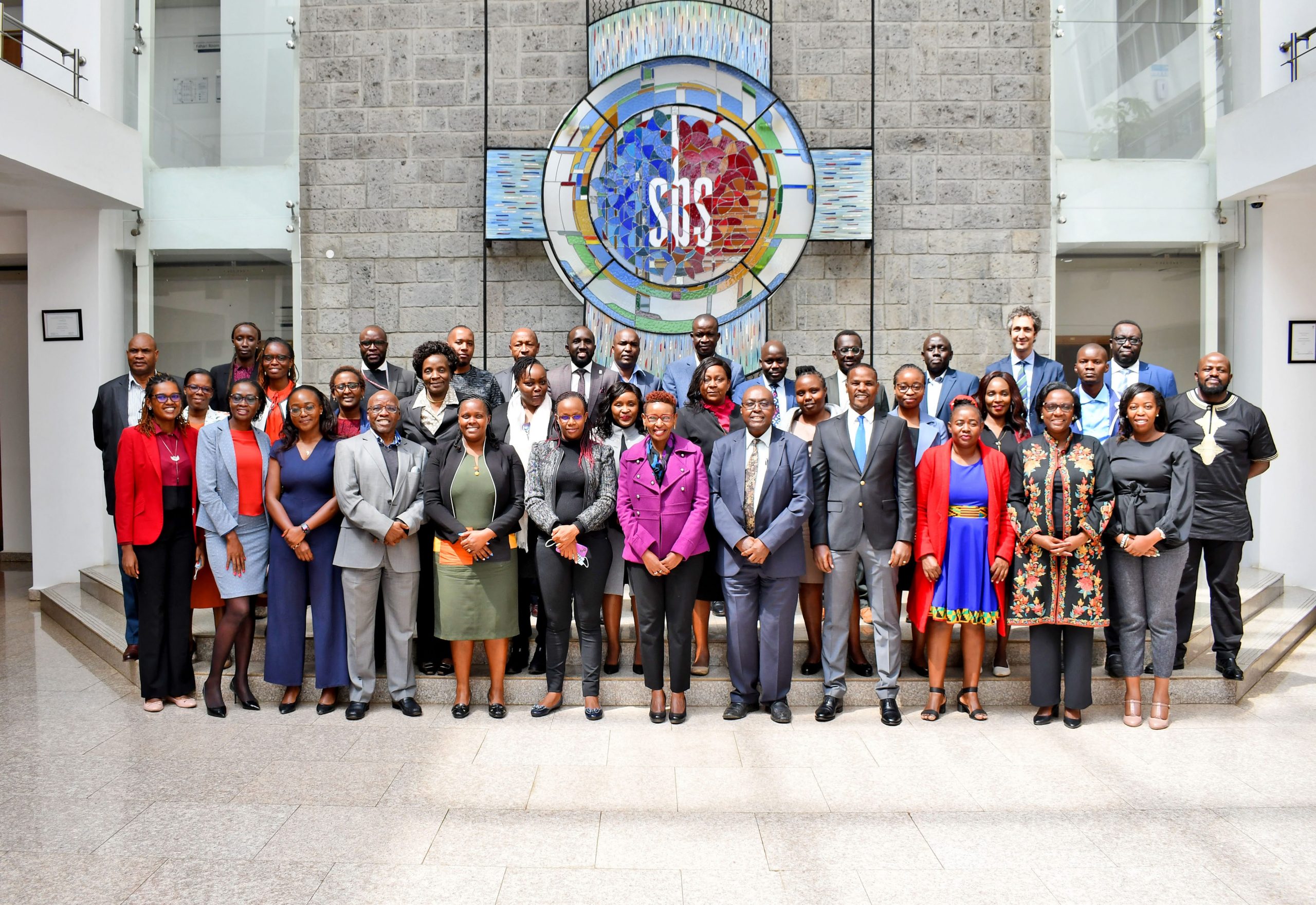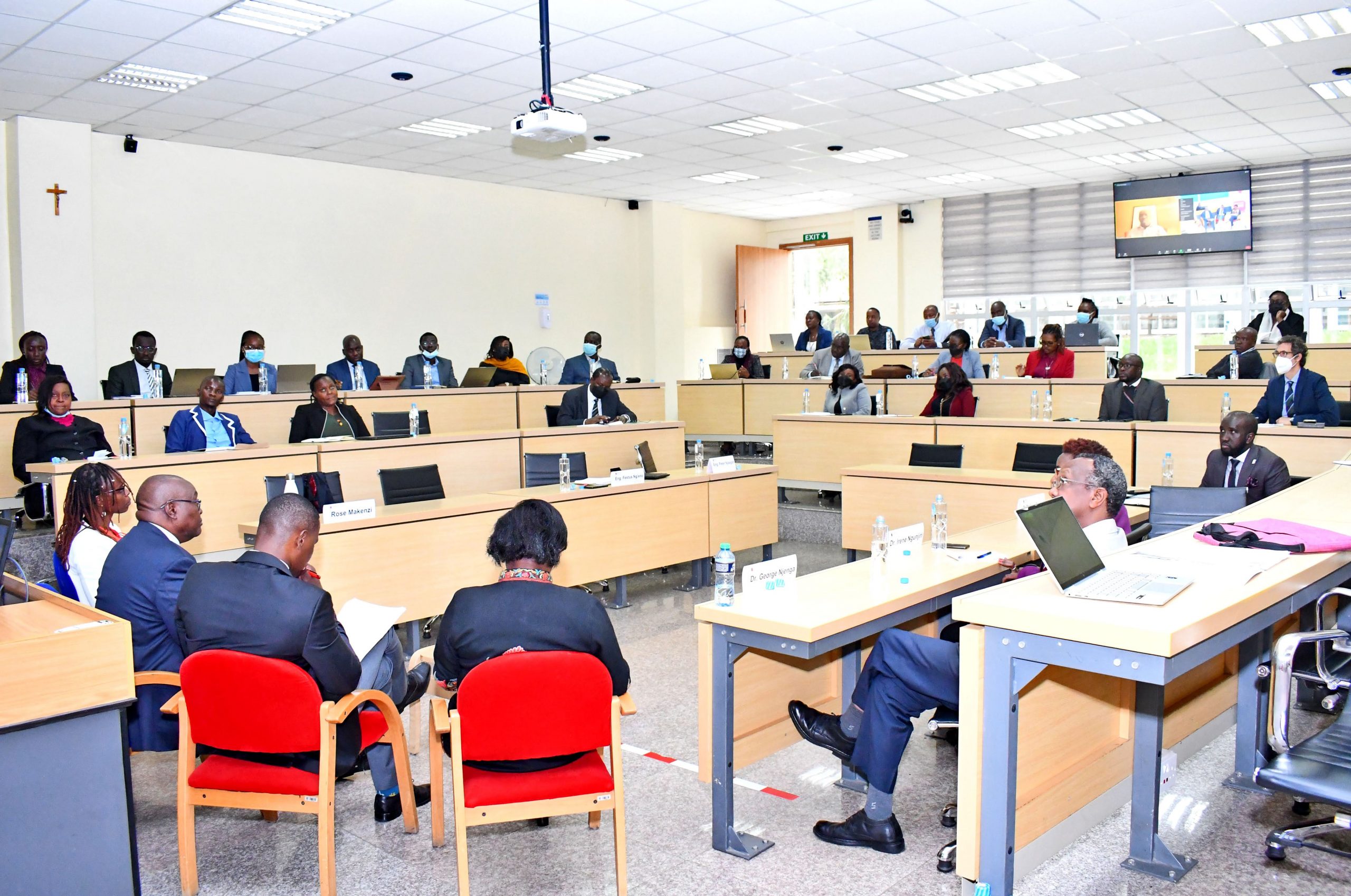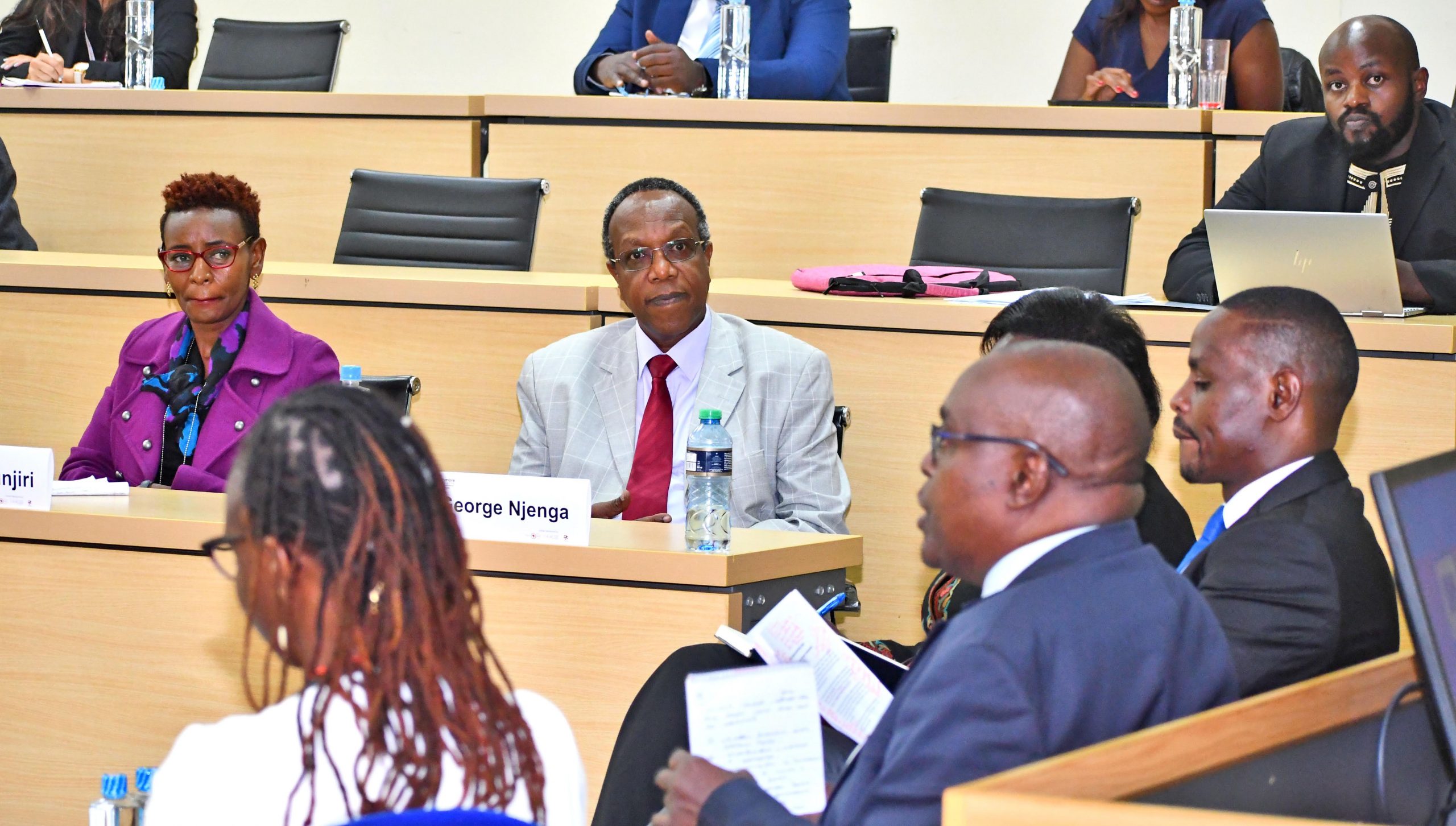On Thursday, 23rd June 2022, we hosted the first ever Water Governance Roundtable event, which brought together key stakeholders from the Kenya water sector to discuss issues around water governance and water policies in Kenya. Presently, the water sector in Kenya is characterised by low levels of access to water and sanitation, and more so in slums and in rural areas. The service quality is also wanting with intermittent water supply being the norm.
In his opening remarks, Dr. George Njenga, Founding Dean, Strathmore University Business School, emphasised the importance of inclusivity in the sector – highlighting the water accessibility issues that arise in remote areas such as Turkana and Pokot. It is ardent that the water sector reassesses the water delivery model, which will in turn help in filling operational gaps such as last mile connectivity.
According to the Transparency International Report 2020, there is systematic corruption in the water sector with upto 50 percent of Water, Sanitation and Hygiene (WASH) projects failing in between two to five years of inception due to lack of accountability and poor governance in the sector. Moreover, nearly two thirds of water utility operating expenses are due to lack of integrity and transparency in the sector. In achieving sustainability, do we need more resources, or do we need integrity in the use and management of existing resources?
Dr. Irene Ngunjiri, Acting Director, Water Governance and Innovation Hub spoke of the importance of integrity in the sector. “The water crisis is only partly a crisis about water; perhaps it is even more fundamentally a crisis of values. The journey to self-resilience through sustainability of water utilities is only possible if it is grounded on personal and organisational integrity,” she noted. Water governance is about making decisions on what, who, when, how, how much, how many times etc. people access water. These decisions depend on who makes them and through what lens. The challenge in water governance is not only to identify the problems, but also to formulate solutions in the form of: what new behaviours need to be adopted and what supporting values do we need to operationalize those new behaviours?
After intense conversations with the panellists who included Engineer Njaagah, Director Licensing, Standards and Advocacy at WASREB, Dr. Barbara Senkwe, USAID- WASHFIN, Engineer Festus Ng’eno, CEC Water, Nakuru County and Mr. Anthony Ambugo, CEO WASPA, all of whom are key stakeholders in the water sector, we found that all the challenges highlighted were similar; from lack of coordination between the stakeholders and the local and national governments, to poor governance structures, inequality in access, poor operational processes, collection inconsistencies, political changes stemming from elections, among many others.
Though the water sector is facing a myriad of challenges, there is hope with the challenges already identified and mapped out. It is now up to the stakeholders to begin implementing changes to ensure a sustainable future.
About the Water Governance and Innovation Hub
The Water Governance and Innovation Hub is domiciled at the Strathmore
University Business School. It aims to transform the Kenya water sector through water governance research, capacity building and consultancy. The Hub is the first co-creation of its kind in the Kenya water sector as a vehicle to enhance the gains already made towards universal access to water services.
The objectives of the Hub are aligned to the Sustainable Development Goals (SDGs) 5 and 6 which seek to make basic water and sanitation available to all by 2030 and gender equality and women and girls’ empowerment respectively. This is because women and girls – particularly those living below the poverty line – are disproportionately affected by the lack of water and sanitation services.
Article by Juliet Hinga
Would you like to share an article? Write to us at sbscommunication@strathmore.edu
Share This Story, Choose Your Platform!
Your journey to business excellence starts here. Subscribe today and be at the forefront of innovation and leadership.












